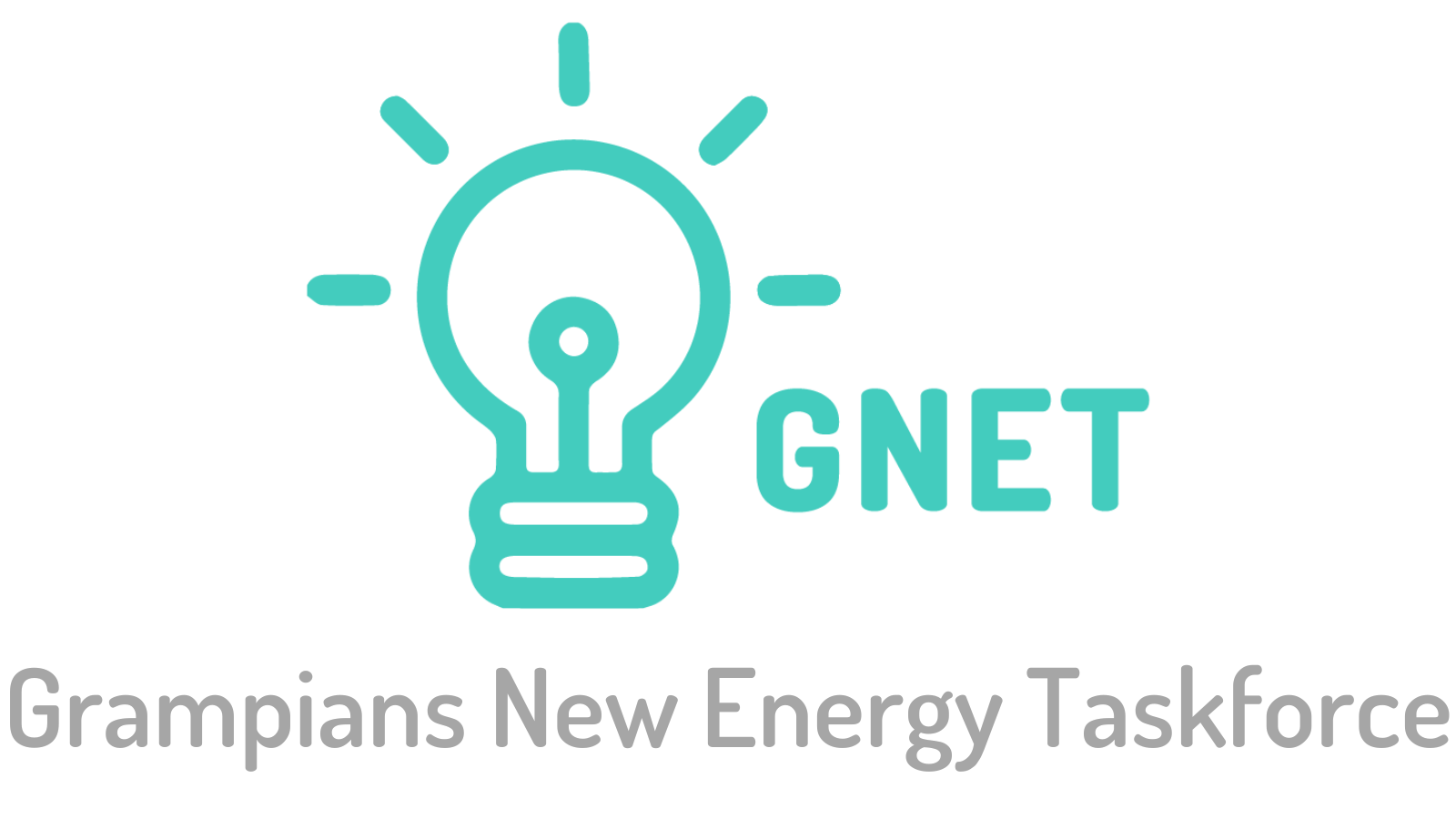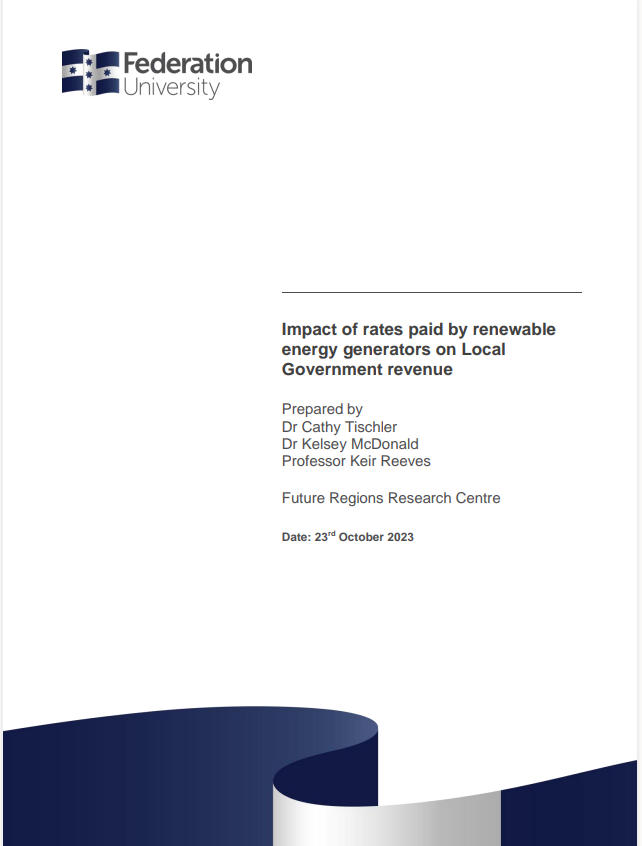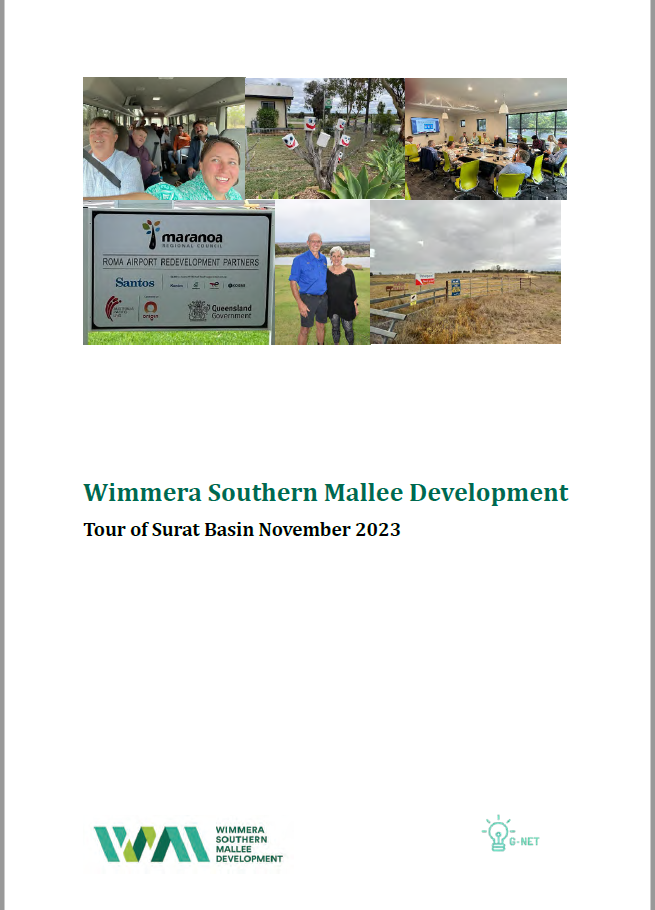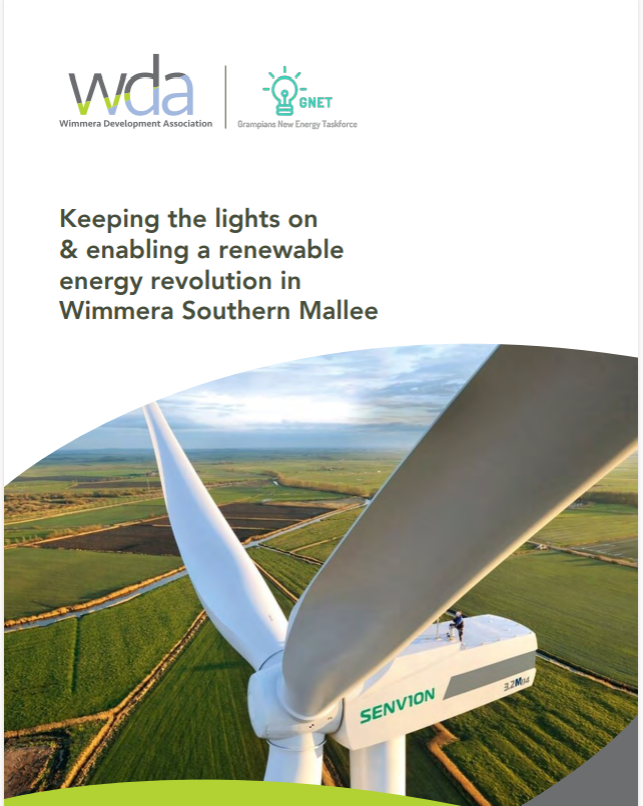Energy Transformation Projects
GNET has been continuing to work with key partners to support the rapidly changing renewables energy transformation in the Grampians region.
The hosting of wind and solar assets can assist local government to generate important income for their communities. Working with Federation University’s Future Regions Research Centre (Horsham Hub), GNET looked at what this might mean for the 11 local government areas with the Grampians.
Working with Wimmera Southern Mallee Development, a research project was undertaken to investigate the broader economic and social benefits to the Wimmera Southern Mallee area, as the Grampians works towards net zero.
Working with WSMD, a research project was undertaken to investigate the broader economic and social benefits to the Wimmera Southern Mallee area, as the Grampians works towards net zero.
R2Z Projects
The Roadmap to Zero (R2Z) project has identified key areas and projects for the region to prioritise moving forward to achieve its net zero emissions goal. These priorities were established after extensive consultation with community, industry and government and if successfully implemented will see the region as an innovative global leader in the net zero emissions economy.
Mosaic farming is a methodology that maximises the natural capital of an areas land use. Using scientific analysis of the landscape, to maximise it productivity and minimise environmental impact.
To reach its full economic potential the region will not only need to successfully develop further renewable energy projects but also increase the benefits of those projects to local communities, and utilise the locally produced energy to develop new and emerging industries such as hydrogen production, manufacturing and mining.
City of Ballarat’s Hydrogen City project is investigating the opportunities presented by hydrogen as a versatile energy source. This project’s focus is on producing hydrogen using renewable wind energy and recycled water. This clean hydrogen could be incorporated into the whole energy system to provide power and gas to industry and households, power to transport and greater storage capacity to Ballarat.
GWMWater has developed a Clean Energy Strategy that identifies a suite of Renewable Energy Opportunities. Behind the meter solar is the most viable opportunity and GWMWater is presently delivering a $3.2 million program of behind the meter installations across its operating facilities.
Funding is being sourced to identify sustainable microgrid options throughout the area to reduce energy costs, improve reliability and increase resilience of their energy supply.
Based in Ballarat, central to Victoria’s wind energy industry, APRETC is currently providing a locally trained and locally based, skilled renewable energy workforce to replace the current imported workforce and is working toward providing to the renewable energy industry high risk training.









